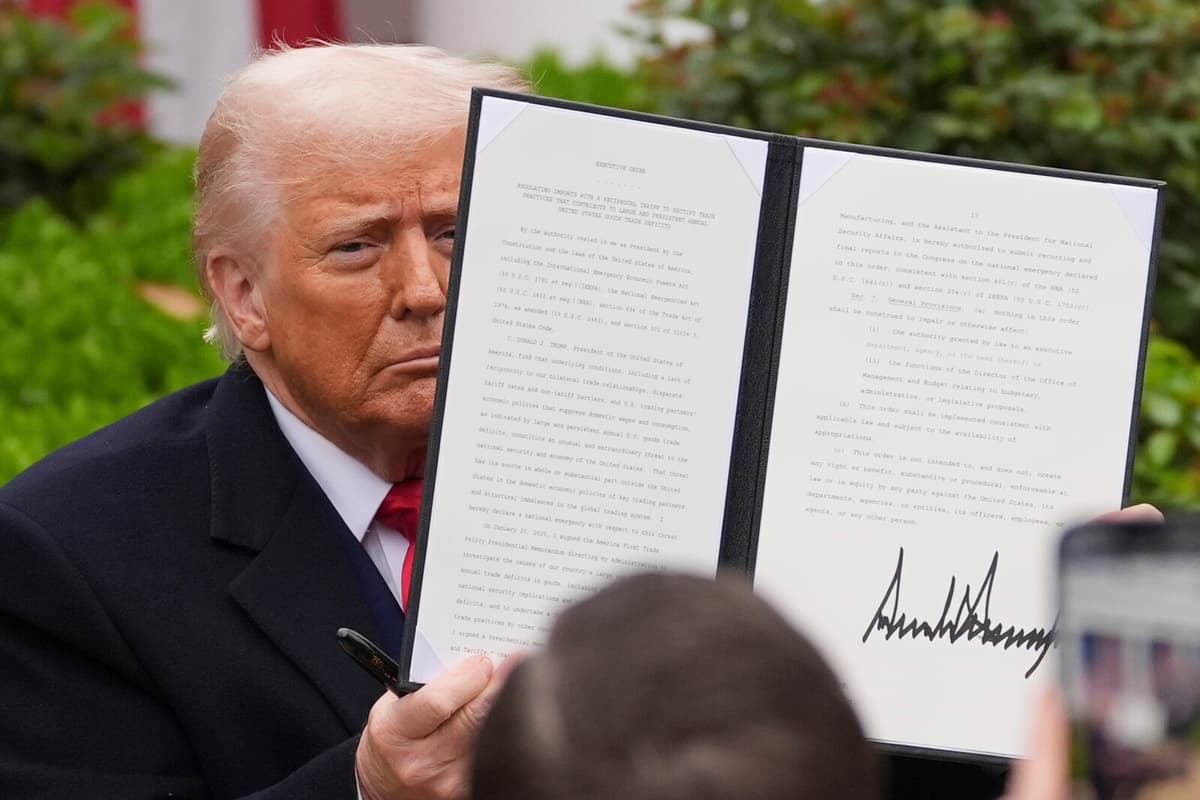The President of the United States, Donald Trump, announced during the night towards Thursday, Swedish time, that the EU will be subject to 20 percent tariffs from April 9.
It's dramatic. It's a new era of trade policy we're entering. The US is going from a country with low tariffs to a country with very high tariffs, says Per Altenberg at the expert authority, the National Board of Trade.
Will soon feel the effects
The figure of 20 percent was also what the authority had counted on. The US is Sweden's third largest trading partner and accounts for 9 percent of exports. Swedish companies will soon feel the effects.
It's not just that the tariffs are being raised, but it's also becoming extremely complex. Just the fact that the US will have 60 different tariffs plus a general one, it's something completely unimaginable, he says.
The previously announced tariffs on vehicles manufactured outside the US came into effect tonight, and within a month, tariffs on vehicle components will be added.
It's a sector where Sweden exports quite a lot to the US.
"Shooting themselves in the foot"
The EU has threatened to respond with its own countermeasures, which have been nicknamed "trade bazooka". It's officially called the "anti-coercion instrument" and means that the EU can quickly impose countermeasures.
However, it's only when we respond that it can lead to more serious economic consequences for us Swedish consumers. The one who takes action is also the one who is most affected by them. And right now, it's the US that's shooting itself in the foot, says Altenberg.
Advertisement
It's far from certain that the US's high tariffs will lead to a better trade balance, according to the National Board of Trade's analysis. There is also a risk that countries will seek other trading partners instead of the US.
The risk here is that everyone becomes a loser. In the short term, it's true that as long as it's the US that takes action, it's the US that's the loser. But if everyone follows suit and it becomes a vicious spiral, then the entire global economy is affected.
Some possible economic bright spots are that pharmaceuticals and timber are exempt, which benefits some Swedish companies. Per Altenberg also notes that no individual EU country is singled out. One could have thought that Denmark would be affected, considering the Greenland conflict.
You can say that it's positive that there haven't been any attempts to split the EU into different member states.






